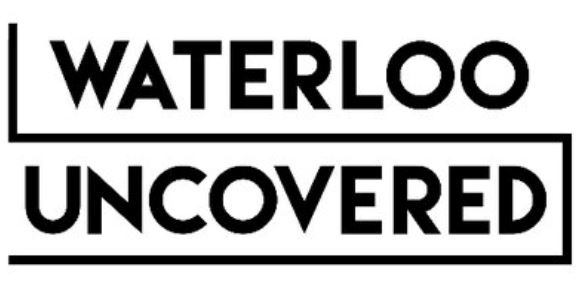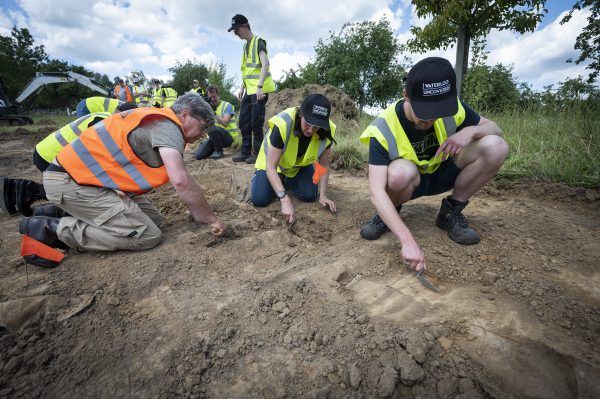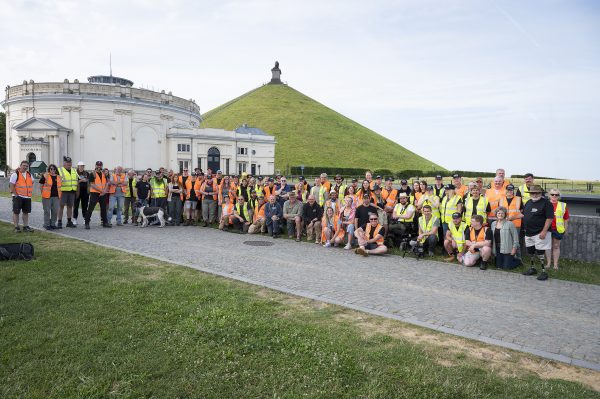The veteran support charity Waterloo Uncovered has returned to the Waterloo battlefield in Belgium to conduct its first archaeological excavation since 2019.
Over the past week its team of world-class archaeologists, students and veterans have unearthed some fascinating discoveries – including an incredibly rare skeleton – that tell us about the horrors that the soldiers of 1815 had to endure.
This year the team has been excavating at two sites; they have revisited Mont-Saint-Jean farm, the site of an excavation which very much fell into the category of ‘unfinished business,’ and they have also moved onto pastures new at Plancenoit, to investigate the site of some of the bloodiest fighting of the battle.
In 2019, the remains of three amputated limbs were excavated at Mont-Saint-Jean Farm, which was the site of Wellington’s main field hospital during the battle and is now home to the Waterloo Brasserie and Microbrewery. On further analysis, one of those limbs was found to have a French musket ball still lodged within it. Just a few metres away, what looked like horse bones were uncovered, but the whirlwind two weeks of excavation was over before the charity had the opportunity to investigate further.
The charity’s excavations were finally able to continue in 2022, and over the course of this week, parts of at least three horses, one of which looks nearly complete, have been discovered at Mont-Saint-Jean. In addition, more human bones have been discovered, including the skull and arm of one individual. These are incredibly rare discoveries on a Napoleonic battlefield, and the team is now fully engaged in further excavation in order to learn more about these thought-provoking remains as the project enters its second week.
Professor Tony Pollard, one of the project’s Archaeological Directors and Director of the Centre for Battlefield Archaeology at Glasgow University, says,
“I’ve been a battlefield archaeologist for 20 years and have never seen anything like it. We won’t get any closer to the harsh reality of Waterloo than this.”
Véronique Moulaert from AWaP, one of the project’s partners, adds,
“Finding a skeleton in the same trench as ammunition boxes and amputated limbs shows the state of emergency the field hospital would have been in during the battle – dead soldiers, horses, amputated limbs and more would have had to be swept into nearby ditches and quickly buried in a desperate attempt to contain the spread of disease around the hospital.”
Elsewhere on the battlefield, outside the village of Plancenoit behind Napoleon’s front line, metal detector survey is providing evidence including musket balls of the heavy fighting that took place here between French and Prussian troops in the later part of the day. It was the arrival of the Prussians from the direction of Wavre in the east which played a vital role in securing victory for the British, Dutch/Belgian and German troops fighting with Wellington. The village changed hands several times before the French, including elements of the elite Imperial Guard, were evicted for the last time, after which they joined the rest of Napoleon’s army as it retired south, carrying his shattered dream of European conquest with it.
Archaeologists and military veterans on the Waterloo Uncovered team are also excavating trenches at Plancenoit to examine below-ground anomalies recorded during the most intensive geophysical survey of a 19th century battlefield ever to be undertaken. Whether any of these will be as visceral and thought-provoking as the discoveries made at MontSaint-Jean remains to be seen, but whatever the outcome, the opportunity to shed more light on this vital but often overlooked part of the battle is welcomed by the team.
What makes the Waterloo Uncovered project even more unique is the fact that veterans and serving military personnel (VSMP), many of whom have experienced physical or mental injuries as a result of their service, form an integral part of the team.
The charity uses archaeology as a tool to help service personnel find peace from the traumas of war, and in turn, VSMP offer a useful military perspective on the discoveries the charity unearths. This year there are 20 VSMP joining the project; 11 from the UK, 5 from the Netherlands, 3 from Germany and 1 from Belgium.
Rod Eldridge, a Wellbeing Support Lead at the charity and a retired Lieutenant Colonel who served as a mental health nurse consultant in the army, says
“Already I can see that [the veterans] are actively engaging with what’s on offer, and I have already seen changes in people that are amazing. Where they might have been quite sullen and withdrawn, they are now already mixing with others – with smiles on their faces, and interjections of humour. I can see the colour again; the recipe and the magic of Waterloo Uncovered is already unfolding.”
Kieran Oliver, a Coldstream Guard veteran, was deployed to Afghanistan just days after his eighteenth birthday, and was later diagnosed with complex PTSD. He is one of the veterans who have joined the team on excavation this year. Talking about the impact of the trip so far, he says,
“It’s crazy how I haven’t been myself for many years and now I’m starting to come out and enjoy myself. I’ve been smiling most of the time and I haven’t smiled in a long time. […] It’s incredible, and what you gain from it as a person, like me coming out of my shell, helps with people’s mental health. It’s been proven, which is why [Waterloo Uncovered] keep coming out and doing it again and again.”
Ashely Gordon, a 1st Rifles veteran who has also accompanied the team shares a similar experience to Kieron and adds,
“Five days after my 18th birthday, I was deployed to Iraq. I returned back, and very shortly after I experienced a lot of problems with PTSD. […] I’ve enjoyed the intricate trowelling. You’re so focused that you don’t think about absolutely anything else, just what you’re doing in that moment, which I find really therapeutic.”
The team will continue its excavations until Friday 15 July, and is sure to make some groundbreaking discoveries about the events that took place at these important battlefield sites.



















